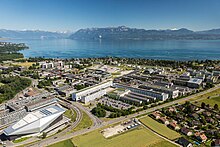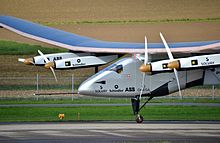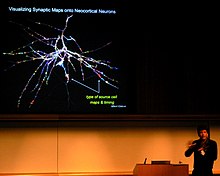École Polytechnique Fédérale de Lausanne
The roots of modern-day EPFL can be traced back to the foundation of a private school under the name École spéciale de Lausanne in 1853 at the initiative of Louis Rivier, a graduate of the École Centrale Paris and John Gay, the then professor and rector of the Académie de Lausanne.The environment at modern day EPFL is highly international with the school attracting students and researchers from all over the world.Holders of a Swiss "maturité gymnasiale" are directly accepted with no other condition in the first year of their Bachelor's program of choice.If the weighted average is insufficient, a student is required to retake the entire first year of coursework if they wish to continue their studies at EPFL.Roughly 60% of students fail the first year at EPFL all majors combined, and many choose to drop out rather than to repeat the propaedeutic cycle.For foreign students, the selection procedure towards the undergraduate program is rather strict, and since most undergraduate courses are taught in French, foreign students must provide documentation of having acquired a level B2 proficiency in French as measured on the CEFR scale, though C1 proficiency is recommended.[18][19] EPFL typically scores high on faculty to student ratio, international outlook and scientific impact.In 1974, five years after EPFL was separated from University of Lausanne and became a federal institute under its current name, the construction of a new campus at Dorigny in Écublens, began.[29] Together with the University of Lausanne, EPFL forms a vast campus complex at the shores of Lake Geneva with about 20,000 students combined.The campus is served by the Lausanne Metro Line 1 (M1) and is equipped with an electric bicycle sharing system.[31] Of the 14,000 people that work and study at the École Polytechnique Fédérale de Lausanne campus, roughly 9.300 are students in either Bachelor, Master or Doctoral programs, the remaining 4,700 being administrative staff, scientists, technical staff, professors and the entrepreneurs located in the Science Park EPFL7.However, it also has branches in Neuchâtel ("Microcity"), in Sion ("Pôle EPFL Valais"),[33] in Geneva (Campus Biotech, including the Wyss Center for Bio- and Neuro-engineering) and in Fribourg ("Smart Living Lab").[35] Beyond its main campus, EPFL operates a network of associated campuses in Western Switzerland, often sharing these spaces with partner academic institutions and hospitals: The Language Centre offers language and communication modules for French, German, Italian and English (CEFR levels A1 to C2)[41] to enable learners to participate more effectively in academic, professional and social situations in an internationalized multilingual and multicultural context.













EPFL (disambiguation)Publicresearch universityAnna Fontcuberta i MorralUndergraduatesPostgraduatesÉcublensSwitzerlandColoursSwiss redCESAEREuroTechLausanneETH ZurichSwiss Federal Institutes of Technology DomainFederal Department of Economic Affairs, Education and Researchurban campusLake GenevaEPFL Innovation ParkÉcole Centrale ParisUniversity of LausanneSwiss Federal Counciluniversities in SwitzerlandcantonalPatrick Aebischerlife sciencesSwiss Institute for Experimental Cancer Research (ISREC)maturité gymnasialeETH DomainCEFR scaleBachelor of ScienceMaster of ScienceCarnegie Mellon UniversityUnited StatesFranceUniversity rankingsQS World University RankingsTimes Higher EducationCWTS Leiden RankingLausanne campusEPFL Learning CenterDorignyRolex Learning CenterSwissTech Convention Centercampus complexLausanne Metro Line 1 (M1)bicycle sharing systemNeuchâtelGenevaCampus BiotechWyss Center for Bio- and Neuro-engineeringFribourgSmart Living LabRas al-KhaimahUnited Arab EmiratescampusUniversity of Lausanne (UNIL)Kengo KumaMontreux Jazz FestivalBig dataHuman Brain ProjectVenice Time MachineMusée BoloArchizoom (EPFL)Balelec FestivalUniversity of TokyoUniversity of Fort HareUniversity of NairobiChalmersUniversity of YaoundeBalélec FestivalHippocratic OathSolar ImpulseAlinghiHydroptèreSwissCube-1NestléLogitechBreitling OrbiterBertrand PiccardBrian Jonescircumnavigationfixed-wing aircraftsolar powerAndré BorschbergBlue Brain ProjectUNESCOTokamakHenry MarkramCROCUSnuclear reactorVictor PanaretosKevin SivulaNicolas MonodRolf GruetterAmbrogio FasoliAli SayedGiovanni De MicheliMatthias LütolfClaudia R. BinderRüdiger UrbankeAndrew OatesSwiss Institute for Experimental Cancer ResearchBruno LemaitreDamir FilipovicSwiss Cancer CentreÉcole cantonale d'art de LausanneSwiss National Supercomputing CentreLists of Presidents of École Polytechnique Fédérale de LausanneMartin VetterliAdrian Mihai IonescuÁlvaro Siza VieiraPritzker PrizeAmin ShokrollahiRaptor codesAnastasia AilamakiAnders MeibomAndrea AblasserArjen LenstraBabak FalsafiBart DeplanckeBernard MoretBoi FaltingsCarmela TroncosoClaude NicollierDaniel Thalmann
